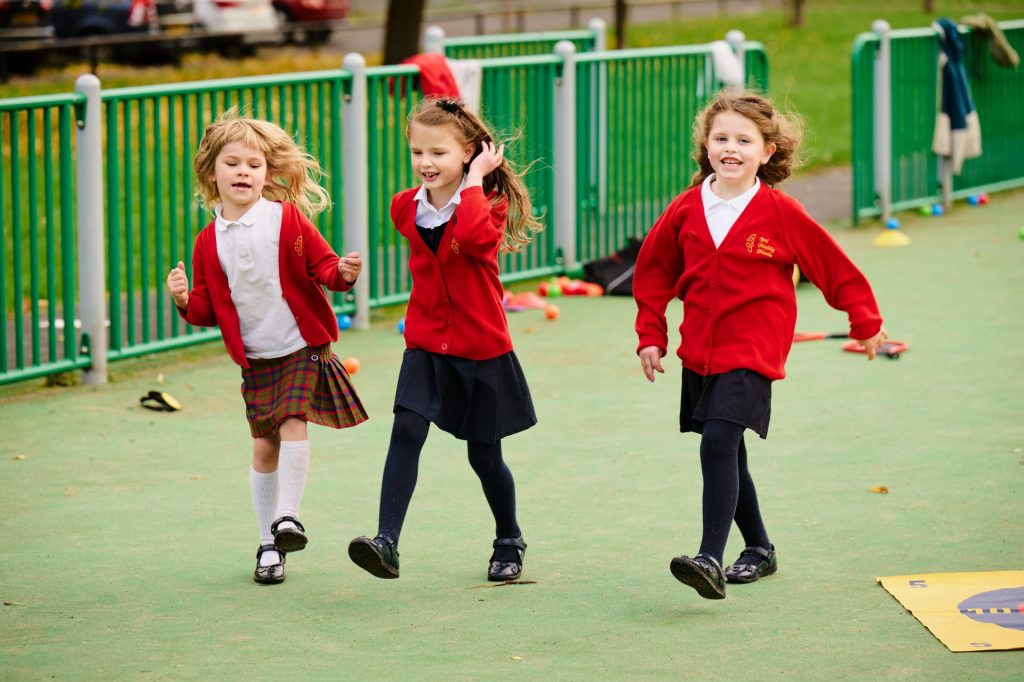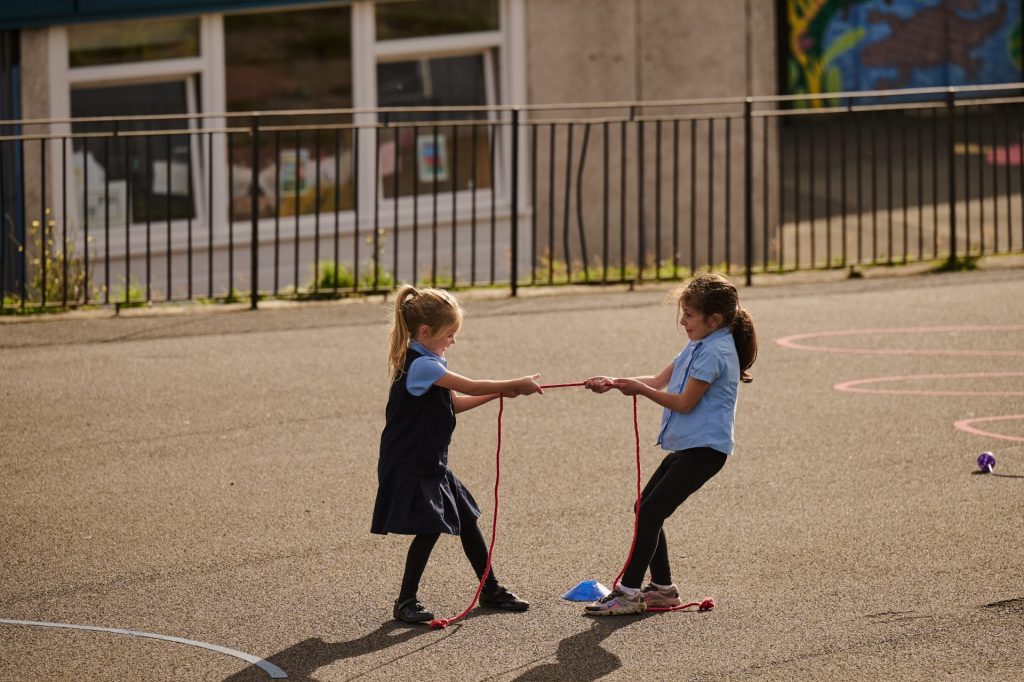Celebrating National Mentoring Day
intandem is a Scottish mentoring programme which supports young people looked after at home. Volunteer mentors make the programme possible and the reason we’re able to make a real difference in the lives of young people.
A consistent, caring mentoring relationship gives children and young people the foundation to overcome trauma experienced in the past and most importantly intandem, offers a place for a young person to have fun. Mentors also create happy memories with young people.
To celebrate National Mentoring Day, Rachael who volunteered as an intandem mentor with partner charity Move On shares what it’s like being a mentor and why she got involved.
What interested you in becoming a volunteer mentor?
Hello, I’m Rachael! I’m 27 years old and live in Midlothian. I’m a full-time civil servant with a keen interest in photography.
I was interested in doing something to help kids in my local area and to give something back to the community. After a bit of research, I thought mentoring would be a great way to support and encourage a young person.
What sort of training did you do before becoming a volunteer mentor with Move On?
I took part in a comprehensive training programme with Move On before being matched with a young person . The training took place every Saturday for 10 weeks and covered areas such as: child protection, prejudice and discrimination, boundaries and identifying different types of abuse. I attended each session and completed supplementary homework tasks.
What support is available to you as a volunteer mentor?
I had a dedicated development worker from Move On who was always on hand to give advice, updates and support. Move On also run regular training sessions which are open to volunteers to sign-up.
What sort of activities did you do with your young person?
We enjoyed swimming, trampolining and library visits to read my young person’s favourite book ‘Grampa’s Great Escape’ by David Walliams. On some occasions we would visit a café for a bite to eat and a chat. During Covid-19 we mainly went for walks in the local area. We would always take a pair of binoculars for birdwatching and an instant camera to take photos for my young person’s journal. We also list the birds that we see on our walk.
What did you enjoy most about being a mentor?
The thing I enjoyed most was our conversations. . He made me laugh and I enjoyed being in his company. He is intelligent and funny and always had a great story or interesting fact to tell me. I found it very rewarding. We had such a good trusting relationship and I am pleased that he felt able to talk to me about anything he wanted to.
What’s your best mentoring memory
For my young person’s birthday, we went to the cinema to see the movie ‘CoCo’. We got popcorn, chocolate and tango ice blasts! We both enjoyed the movie so much we spent the whole car journey home singing the main song ‘Remeeeeeember me…’ from the top of our lungs.
What difference does having a mentor make to the life of your young person?
I think a mentor can make a huge difference to the life of a young person.
A mentor is someone who genuinely cares and always has an open ear to listen to the good things and the bad without judgement.
A young person can enjoy new opportunities, try something new, develop socially and grow in confidence.
What skills has being a mentor taught you?
I have developed strong communication skills which I think is central to a successful mentoring relationship. I have found that active listening is key to understanding how a young person is feeling. Being responsive, by showing interest, empathy and understanding, made my young person feel confident in talking and sharing things with me. These transferrable skills are essential in many areas of life.
intandem is a national mentoring programme, managed by Inspiring Scotland and funded by Scottish Government and The Robertson Trust. Intandem supports a portfolio of 13 partner charities, providing weekly mentoring for young people aged 8-14 years, living at home on a compulsory supervision order or in kinship arrangements.
Find out more on becoming a volunteer mentor.
Empowering women and girls through Active Play
To mark this year’s Scottish Women and Girls Sports week we want to highlight the positive impact of women and girls’ participation in sports and physical activity through the Active Play Programme. Using a partnership approach it is enabling children, and adults, to participate in, and in turn lead on Active Play across Glasgow and the rural Highlands.
It is clear that taking part in outdoor play, regular sports, or physical activity is good for individuals and communities.
However, despite this, nearly 60% of girls don’t meet the recommended exercise guidelines. Research from Women in Sport shows that at the age of nine, many girls have already been put off sport and over 40% of girls have dropped out of all sports activity by the time they reach their teenage years. We must change this.
We believe that Active Play can be part of the solution to this national problem.
Active Play combines grassroots delivery of inclusive active play, with training and support, so that children have access to more fun and inclusive active play and adults can understand the principles of Active Play and be confident in implementing it. The more adults who are able to continue to facilitate active play, the more active play for children.
Since 2016 Inspiring Scotland has have worked in partnership with Glasgow City Council to deliver Active Play to 5,000 children in 147 primary schools and this year will bring the programme to the Highlands in 3 primary schools, benefitting around 360 children.
Active Play is typically delivered over a 15-week period for 1 hour per week with 30 mins of structured active play led by a trained charity leader and 30 mins of outdoor free play activity. The sessions can take place in a school, nursery, or community setting. And the approach is underpinned by three drivers: Fun, Active and Inclusive.
Bringing the fun back into physical activity can be a huge incentive for engaging women and girls in sport. The team of partners collaborating on the programme also understand the importance of involving the children, and those who care for them in a way that promotes confidence, leadership, and ownership – boosting motivation and physical competence.
The Active Play programme is backed by evidence from a PHD doctorate, internal and external evaluations. We know it is building children’s resilience, confidence, and self-esteem. Data has also shown children have improved relationships, physical ability, negotiating skills, energy levels/stamina, confidence, and happiness all being improved.
Teaching staff are also recognising the benefits with many continuing to deliver Active Play after the programme has ended. Feedback has also suggested that physical activity/literacy levels have been further enhanced by 74% children taking up/planning to take up new sports clubs or activities after school. In addition to 80% participating in more active play at breaks and lunchtime, or at home.
The Value of Partnerships
The Active Play programme would not be possible without the expertise, knowledge, and resource from a range of partners.
Actify lead on the CPD training of all adults involved in the programme and provide a centralised place for learning and sharing of best practice. Check out the Active Play hub here: https://actify.org.uk/activeplay
Having professional play experts leading Active Play on a weekly basis is crucial to the success of the programme. These positive and trusted role models bring their expertise, cooperative working practices and shared learning and is enhanced by the ongoing CPD delivered by Actify. Additionally, the play charities provide a bridge between communities/families and schools; providing wraparound support to the most vulnerable children across Glasgow.
Inspiring Scotland’s role has been central to the ongoing strategic development of Active Play. From inception to now, working closely with Glasgow City Council Education Department, PEPASS, teachers, schools, and other stakeholders across the country and the grassroots charities to ensure a joined up and complementary approach.
If we value the health and well-being of girls, and all children and want to create a future of young people and adults who enjoy being physically active then we must continue to work together to remove barriers. We can provide more and better active play, physical activity and sporting opportunities which are fun, active, and inclusive and become a fundamental part of growing up in Scotland.
 For more information on the Active Play programme please feel free to drop me a line Melodie Crumlin, Thrive Outdoors Fund Manager melodie@inspiringscotland.org.uk or follow on Twitter @Melodie_Crumlin
For more information on the Active Play programme please feel free to drop me a line Melodie Crumlin, Thrive Outdoors Fund Manager melodie@inspiringscotland.org.uk or follow on Twitter @Melodie_Crumlin


